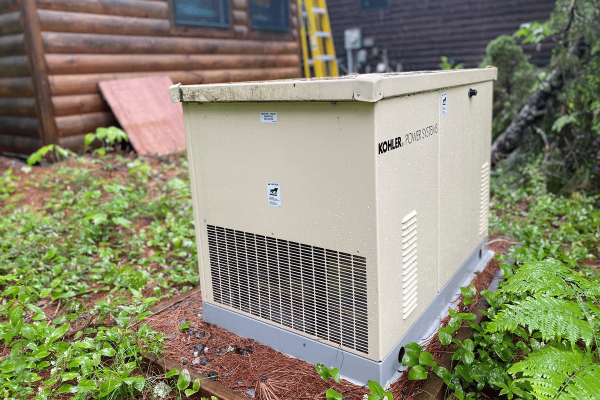
Demand for whole-house backup generators spiked this year after high winds, heavy rains and freezing temperatures left about 100,000 Mainers without power last Christmas morning.
That has led to backlogs set to run into the fall, with one contractor having more than 200 generators waiting to be installed for eager homeowners.
The interest in whole-house generators, which automatically turn on when the power goes out and which are run by propane and other fuels, underscores the need for them in a state that has historically had some of the worst power outages in the nation. Last year’s wind storm followed a historic one in 2017 that knocked out power to 500,000 Mainers.
“The weather is a big player,” Chris Moulton, co-owner of Mid Maine Generator in Winthrop, said. “Last year when it was calm we were praying for a storm.”
Right now a customer who orders a generator would have to wait until September to get it. Mid Maine Generator installs about 600 generators a year and is the largest Kohler generator dealer in the Northeast, Moulton said. It generally cannot install generators when the ground is frozen, because it must build a slab to set the unit on and dig into the ground to attach it to the home’s electricity and to the supply of fuel to run it.
People moving to Maine or buying second homes here during the COVID-19 pandemic comprise a good chunk of buyers, he said.
A Kohler generator, including installation, costs up to $12,000. Moulton expects a rush of orders around Labor Day, when homeowners remember the previous winter’s weather and extended power outages.
Electrical Systems of Maine also gets a lot of out-of-state customers. It installs about 400 generators a year. Sales increased during the height of the pandemic when a lot of people worked from home. People wanting to age comfortably in their homes also are buying generators, Matt Tassinari, its chief financial officer, said. The company has a backlog of about 100 installations and is scheduling new purchases about three months out.
It doesn’t necessarily take a major storm to knock out power, Tassinari said. A car crash into a pole or 30-mile-per-hour winds could cause outages. Some customers have said they are concerned about the more frequent and intense storms brought on by climate change.
“People got tired of losing power,” he said.


Two types of whole-house generators, which go on automatically when power fails. Credit: Lori Valigra / BDN; Courtesy of Electrical Systems of Maine
Generator companies caution customers to make sure they have a large enough generator to handle the devices they use during a pandemic. One installer said 200 people called for service during the Christmas storm because the generator had stopped.
Those who added electrical vehicle chargers or heat pumps after they installed their generator may not have enough backup power to handle the load.
“The generator is smart enough to know when it is being overloaded, and will shut itself down,” Tassinari said. “Customers can call us to see if they have excess capacity to add an EV charger.”









